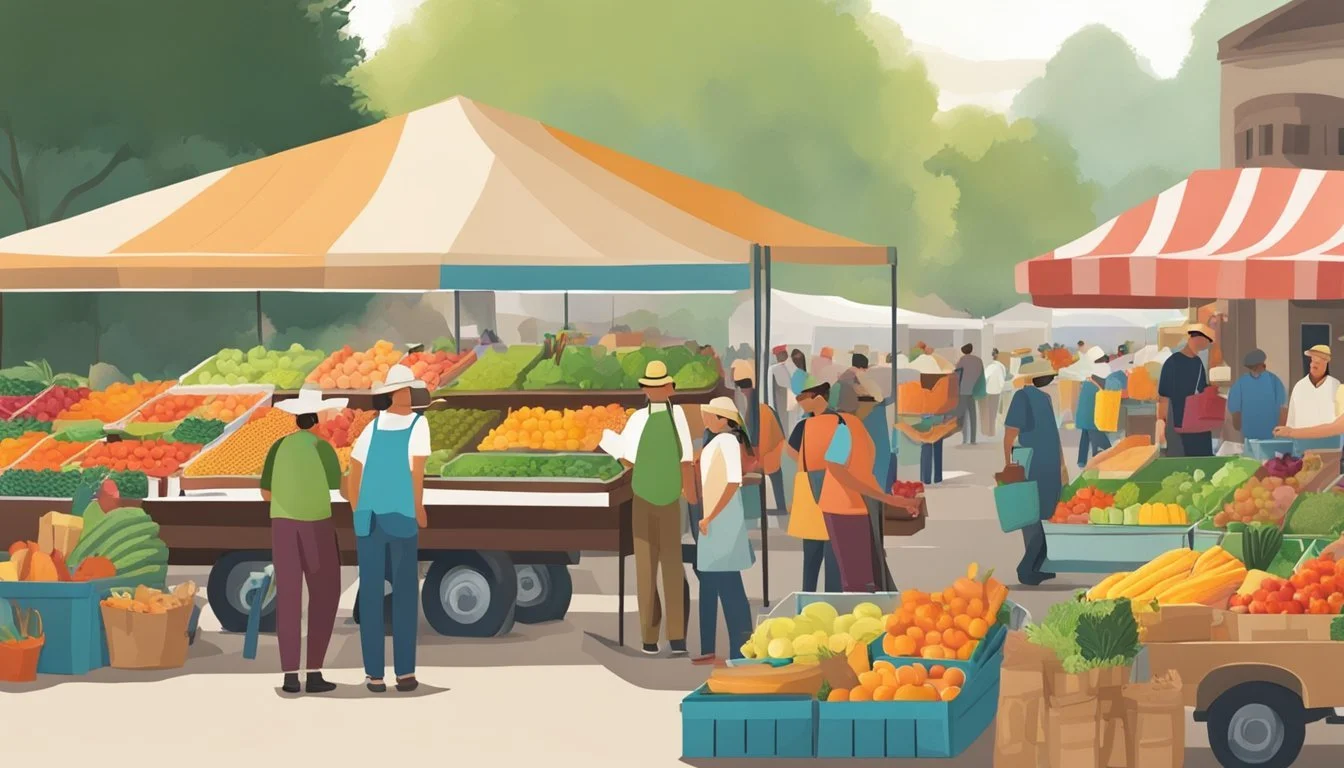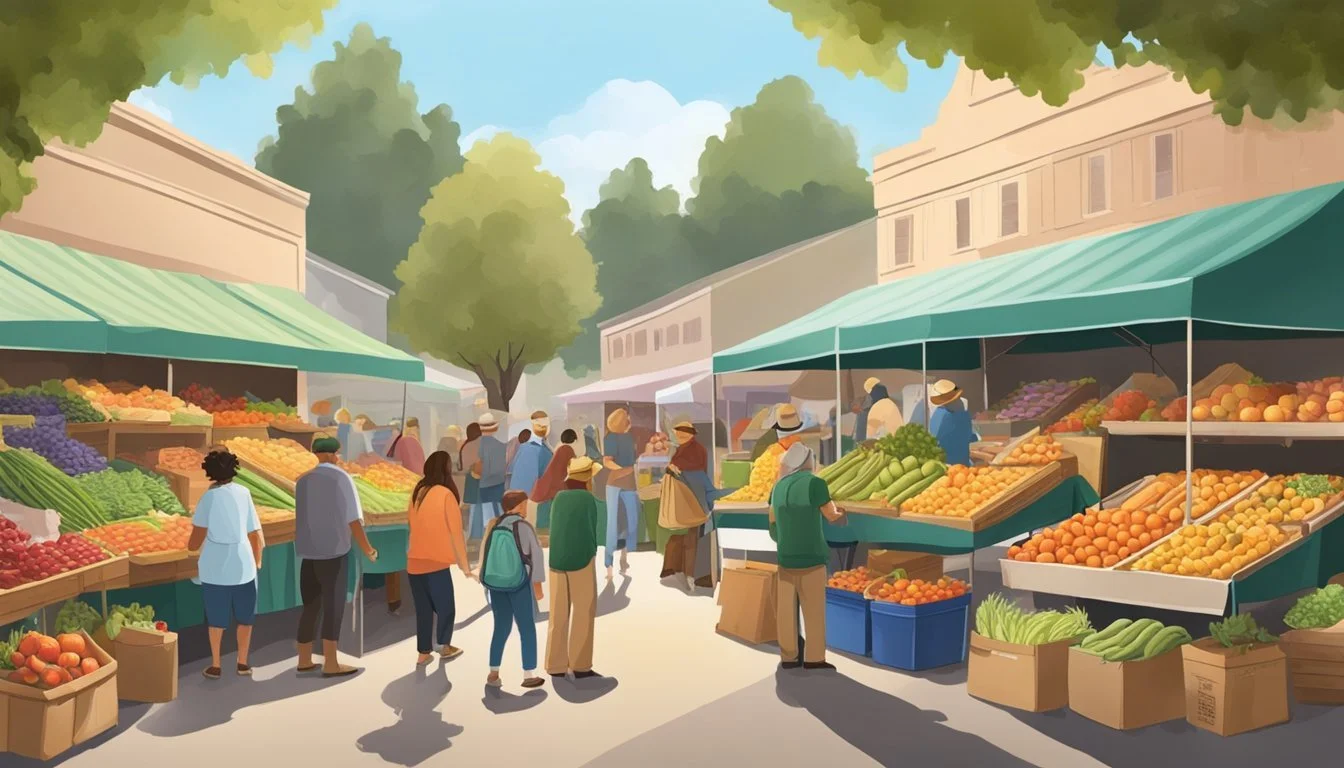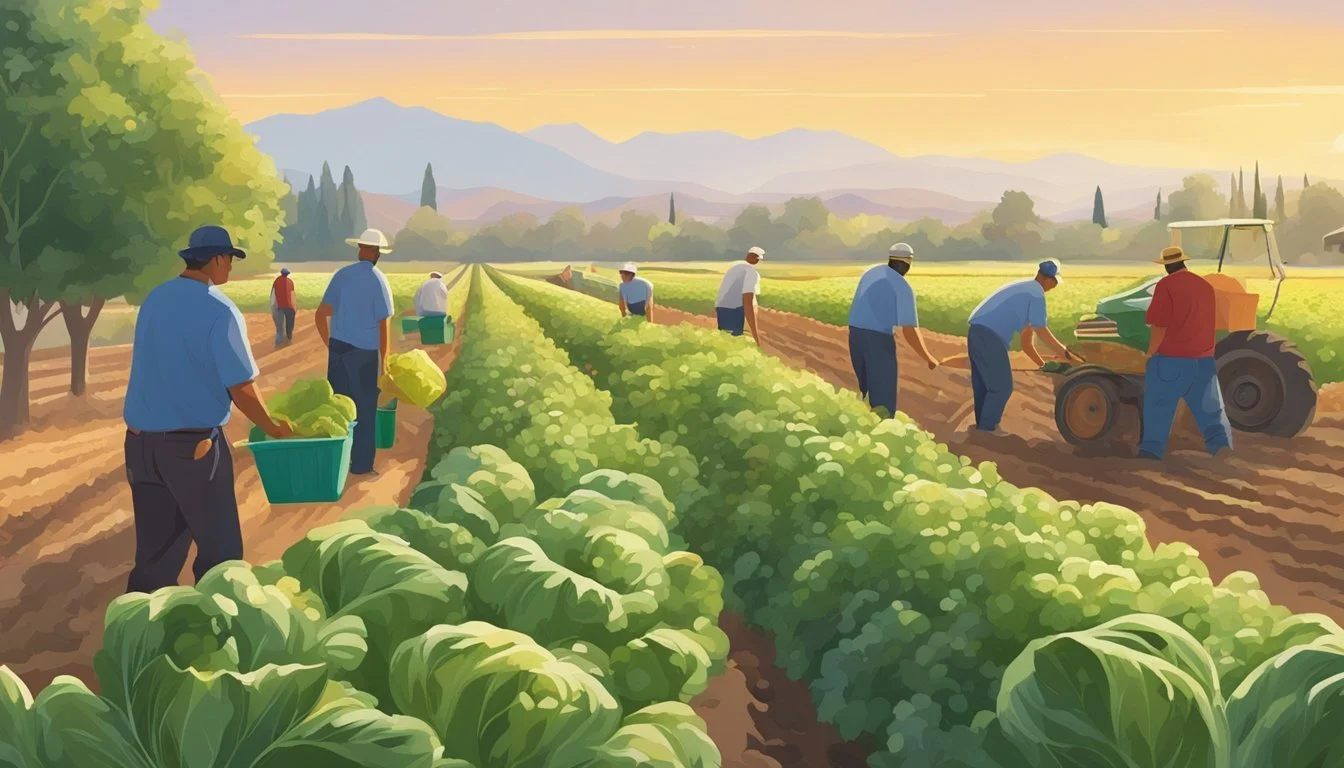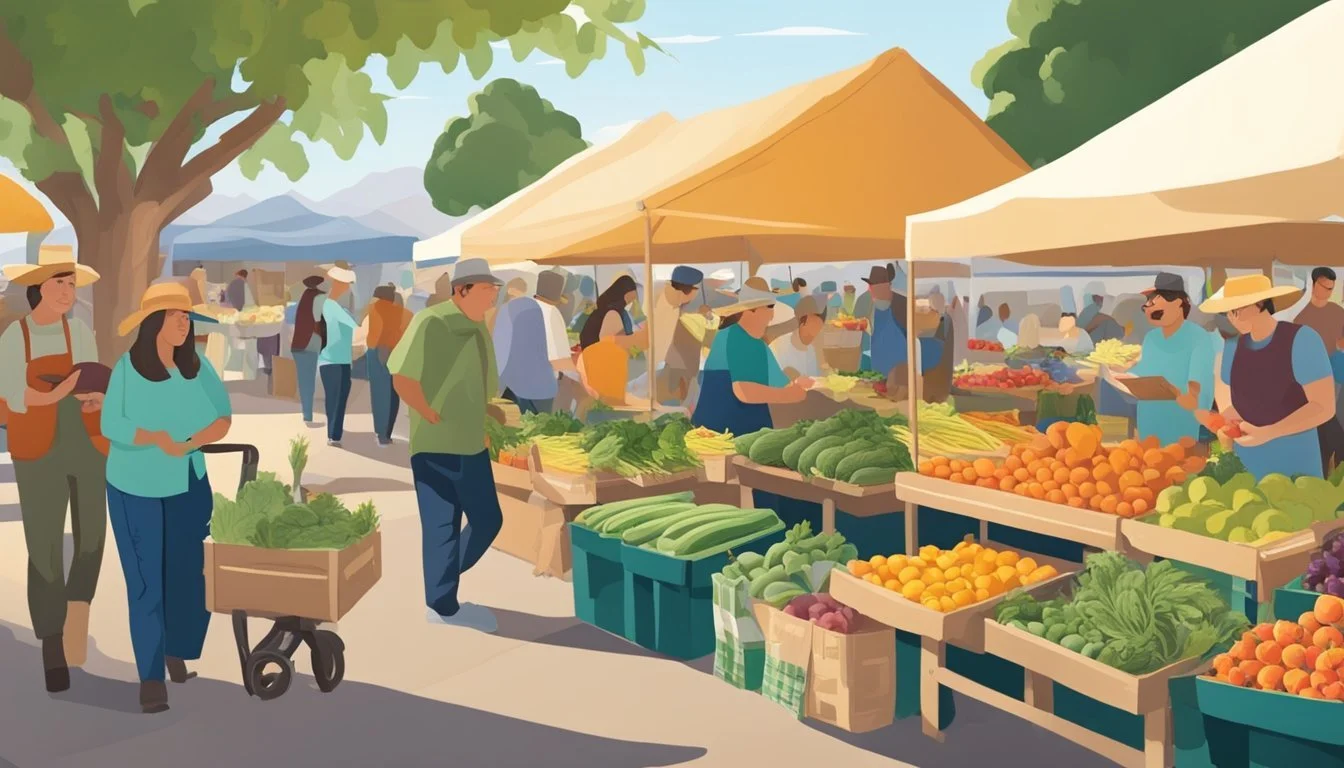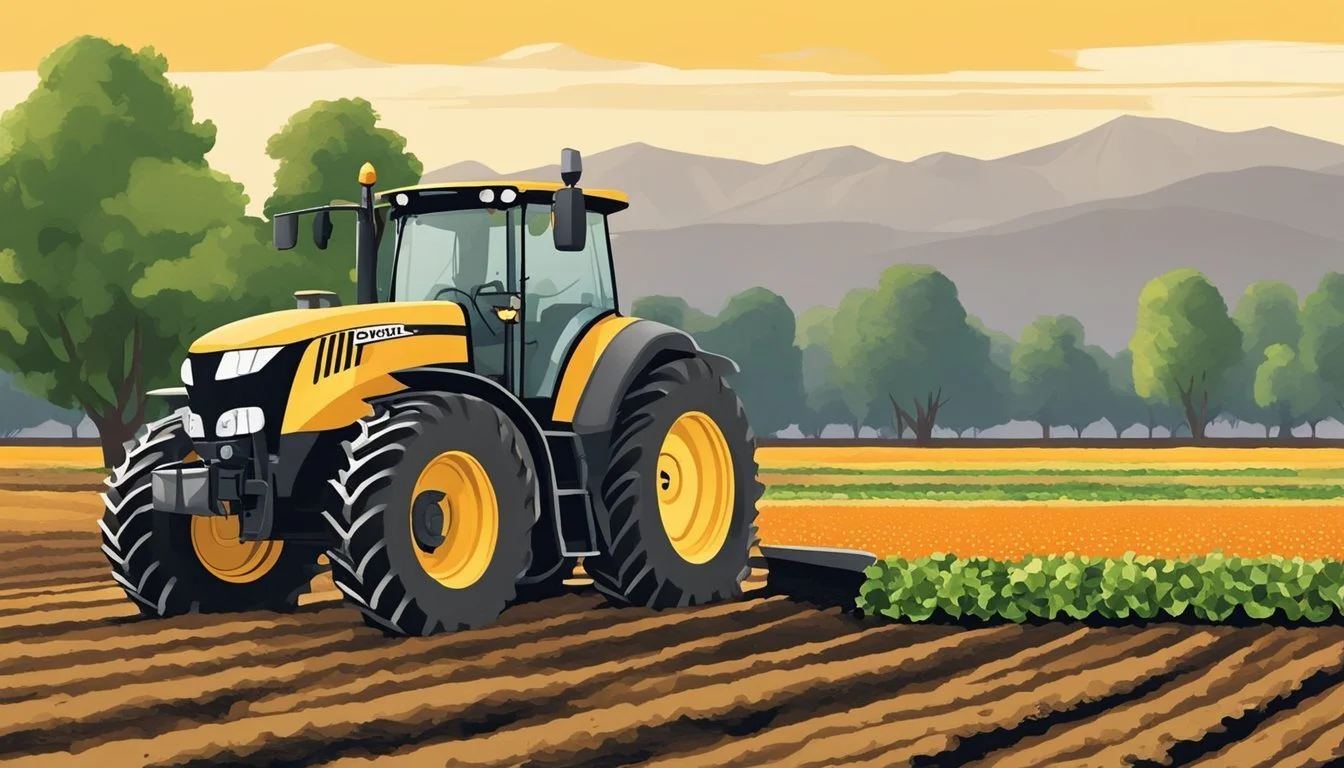Community Supported Agriculture (CSA) in Visalia, CA
Your Guide to Local Produce Partnerships
Community Supported Agriculture (CSA) is a thriving part of the agricultural tapestry in Visalia, California. By allowing consumers to purchase shares directly from local farmers, CSAs foster a closer relationship between residents and the people who grow their food. This model not only bolsters the local economy but also encourages sustainable farming practices. In Visalia, consumers have the opportunity to choose from a variety of CSAs, which contribute to a real sense of community and shared commitment to health and local prosperity.
Through a CSA, members in Visalia receive regular deliveries of seasonal produce, with each box reflecting the diverse offerings of the region's fertile land. This direct farm-to-table approach ensures that members enjoy the freshest possible ingredients while supporting family farmers who utilize eco-friendly methods. Farms in the Visalia area, such as The Hog Shop and BeeGreen Farm, exemplify the diverse options available, offering everything from organic fruits and herbs to locally sourced meat products.
The CSA model in Visalia does more than provide convenience; it educates consumers about the seasonal nature of food and the challenges of small-scale farming. By sharing in the risks and rewards of the harvest, CSA members become integral to the sustainability of the farms they support. This exchange goes beyond the transactional and becomes a partnership, where mutual benefits drive a stronger, more resilient local food system.
Understanding Community Supported Agriculture (CSA)
Community Supported Agriculture in Visalia, CA, exemplifies a symbiotic partnership linking consumers directly to their food source. This model nurtures a thriving local economy and bolsters community health and education while promoting sustainable agriculture.
Benefits of CSA to the Community
CSAs foster strong community ties by enabling locals to partake in the agrarian life cycle. Members relish the assurance that their food is grown within their community, thus bolstering the local economy and forging a sense of interconnectedness.
The CSA Model Explained
A CSA operates on a subscription basis, where members buy shares of a farm's anticipated harvest. Thoroughly seasonal, this model provides a weekly or bi-weekly distribution of fresh fruits and vegetables tailored to what the farm can sustainably produce.
CSAs and Local Economy
When consumers invest in CSA shares, they directly inject money into the local economy. The commitment provides farmers with upfront capital to manage their operations, often leading to a stable income and the economic viability of small-scale farms.
Organic and Sustainable Farming Practices
CSAs often emphasize organic and sustainable cultivation methods, minimizing harmful pesticides and enriching the soil. This intentional choice significantly lessens environmental impacts, protecting local ecosystems.
The Seasonality of Produce in CSAs
Members of CSAs experience a variety of produce that reflects the region's seasons. This aspect encourages a diet that is in harmony with the natural agricultural calendar of the area, promoting both freshness and diversity.
Challenges and Risks of CSA
Operating a CSA includes risks such as unpredictable weather and market fluctuations. These can affect harvest yields and, consequently, the quantity of produce available to members, which is a shared risk in the CSA model.
CSA and Research
Studies on CSA systems show potential benefits, like reduced carbon footprints and improved soil quality. Ongoing research supports the adaptation of CSAs to maximize yield and efficiency while maintaining their core sustainable values.
Health Benefits of CSA Produce
CSA produce is typically fresher than store-bought alternatives, leading to higher nutritional content. Access to a variety of organic fruits and vegetables can also enhance overall health and well-being.
Supporting Education Through CSA
Local CSAs often partner with schools to educate the next generation about sustainable agriculture. Teaching children where their food comes from can foster environmental stewardship from a young age.
Environmental Responsibility and CSA
Through practices like reduced transportation and minimal packaging, CSAs demonstrate environmental responsibility. Their actionable commitment to sustainability has a meaningful impact on local ecosystems.
Availability and Accessibility
The visibility of CSAs in local markets increases the accessibility of fresh, organic produce. By offering different sizes of shares and pick-up locations, CSAs work to accommodate the needs of a diverse community.
Relationship Between Farmers and CSA Members
CSAs cultivate a direct connection between farmers and community members. This relationship builds trust and provides members with insight into the farming process, highlighting the importance of where and how their food is produced.
CSA Operations in Visalia
Visalia, CA, is home to a thriving community supported agriculture (CSA) culture, with local farms offering a rich array of products and experiences to their members. These operations connect consumers directly with their food source, fostering community engagement and supporting sustainable agricultural practices.
Types of Products Offered by Local CSAs
Local CSAs in Visalia provide a wide variety of produce, extending beyond just vegetables to include fruit, meat, and flowers. For example, Genesis Organic Farm in Hanford, not far from Visalia, offers certified organic peaches, cherries, apples, blackberries, and more. Some farms offer rare and unusual varieties of fruits such as Pluots, Apriums, Colorcots, and Pluaries.
The Process of Joining a CSA in Visalia
To join a CSA in Visalia, customers typically purchase a subscription, becoming a member of the farm. This seasonal share entitles members to regular deliveries of fresh, locally-grown produce. Interested parties can join mailing lists for updates on harvests and availability of produce.
Customization and Customer Choice
The extent of customization and customer choice in CSAs can vary. While some farms offer set boxes of goods, others may allow members to select their preferences. This flexibility accommodates different lifestyles and dietary needs, ensuring a personalized connection between the farm and its consumers.
Delivery and Packaging Methods
CSAs usually operate through a weekly delivery of food to their members. Packaging methods focus on maintaining the freshness of produce and often reflect environmental awareness with the minimal and recyclable materials. Some CSAs also support online EBT, reaching out to customers who depend on SNAP benefits.
Farm Events and Community Engagement
Many CSAs in the Visalia area host events that allow the community to engage directly with their local farmers and the farms themselves. These events can range from farm tours, harvest festivals, to pick-your-own produce outings, thus deepening the relationship between producers and consumers.
Unique Features of Visalia CSAs
Visalia's CSAs stand out by their commitment to organic farming practices and investment in community health. Some local CSAs innovate beyond the traditional model of produce delivery, introducing creative strategies to meet community needs and preferences.
In summary, Visalia boasts an active CSA scene with diverse options for locally sourced organic produce, accommodating community engagement, and a supportive network between farmers and consumers.
Farm Profiles and Local Impact
Visalia, CA, serves as a hub for diverse Community Supported Agriculture (CSA) programs, where the commitment to sustainable farming and organic produce connects the community to the very roots of local farming traditions.
Spotlight on Safe Haven Sustainable Farms
Safe Haven Sustainable Farms functions not only as a family farm but also as a 501(c)(3) non-profit organization. They champion heritage breed hogs and adhere to humane farming methods. This commitment ensures a strong bond with local CSA subscribers who value animal welfare and environmental stewardship.
Flora Bella Farm: A Commitment to Organic Produce
As a certified organic farm, Flora Bella Farm is family-owned and operated, cultivating a wide array of produce. Produce: assorted greens, bok choi, collard, beans, broccoli, cabbage, and root vegetables. They stand out in the local Visalia community for their adherence to sustainable and organic farming practices.
Highlighting Mary's Turkeys from the Pitman Family
The Pitman family, known for Mary's Turkeys, provides free-range heritage turkey, especially popular during the Thanksgiving holiday. Their farming methods connect them closely to the local community, as they raise poultry that's synonymous with family tradition and holiday feasting.
Rancho Padre Farms: Emphasizing Variety
Rancho Padre Farms is renowned for its seasonal variety including but not limited to mulberries, while also raising chickens. They are especially appreciated in the CSA community for their varied offerings that keep local tables both interesting and nourishing throughout the year.
Exploring Flower Cottage Farm's Unique Offerings
Flower Cottage Farm, a micro flower farm, specializes in heirloom flower varieties. They offer local bouquet delivery, you-pick flower sessions, and feature blossoms like dahlia, lavender, and annual flowers fields. Their unique connection to the community stems from the joy and beauty they bring through their blooms.
Frequently Asked Questions
In this FAQ section, readers will find essential information about CSA in Visalia, CA, tailored to address common inquiries from potential members and the local community.
Navigating CSA Membership and Shares
When considering joining a CSA, community members often ask about the process of becoming a member and the nature of CSA shares. CSA membership involves purchasing a share of a local farm's expected harvest. Shares are typically paid for up front at the beginning of the season, providing farmers with necessary funds early on. The cost of shares varies, but one can expect to pay between $400-$700 annually. In return, members receive regular deliveries of fresh, seasonal produce, fostering a direct link between local farmers and their community.
Understanding Farming Practices
Prospective CSA members frequently inquire about the farming practices utilized by local Visalia farmers. Many CSAs prioritize sustainable and organic farming methods, aiming to provide the freshest produce with minimal environmental impact. Community members are encouraged to ask their farmers if they employ practices such as crop rotation, organic pesticide management, and other sustainable practices to maintain soil health and biodiversity.
Inquiring About Crop Varieties and Availability
One commonly asked question pertains to the crop variety and availability within a CSA share. Since CSAs focus on seasonal harvests, the produce selection changes throughout the year, reflecting what is locally grown and harvested. To align with customer choice and preference, some CSAs may allow members to select from a list of available produce each week.
Questions About Delivery and Pick-Up Options
Accessibility and convenience are key concerns for CSA members, so questions surrounding delivery and pick-up options are prevalent. Most CSAs offer either a delivery service to the member’s doorstep or designated pick-up locations. It is important for members to verify with their CSA the schedule, frequency of deliveries or pick-ups, and any packaging policies to ensure alignment with their own availability and sustainability preferences.
Preparing for the Season Ahead
As the season approaches, both growers and consumers in Visalia, CA prepare for the symbiotic journey of Community Supported Agriculture. Key to success is understanding the CSA model, aligning expectations, and planning to integrate seasonal harvests into daily life.
Tips for New CSA Customers
New CSA customers should consider the following tips to fully engage with the CSA experience:
Learn about the Farm: Familiarize oneself with the CSA's practices, harvest schedules, and crop varieties.
Be Payment-Prepared: Payment for CSA membership often occurs before the season begins, ensuring you have the means to cover the cost, typically between $400 and $700 annually.
Meal Planning and Cooking with CSA Produce
Cooking with seasonal produce requires both creativity and flexibility:
Expect Variety: A CSA share may include vegetables new to you. Embracing different produce can diversify your diet and boost health.
Use Seasonal Recipes: Incorporate seasonal recipes that highlight the fresh flavors of the harvest. For example, spring might call for fresh salads with leafy greens, while fall warrants hearty soups with root vegetables.
Planning for the Harvesting Process
Understanding the harvesting process is beneficial for both consumers and farmers as it sets realistic expectations for the season ahead:
Anticipate Fluctuation: Harvest yields can vary due to weather or other factors.
Schedule Pick-Ups: Know your CSA's pick-up locations and times, and plan weekly pickups so you can consume the produce at its freshest.

